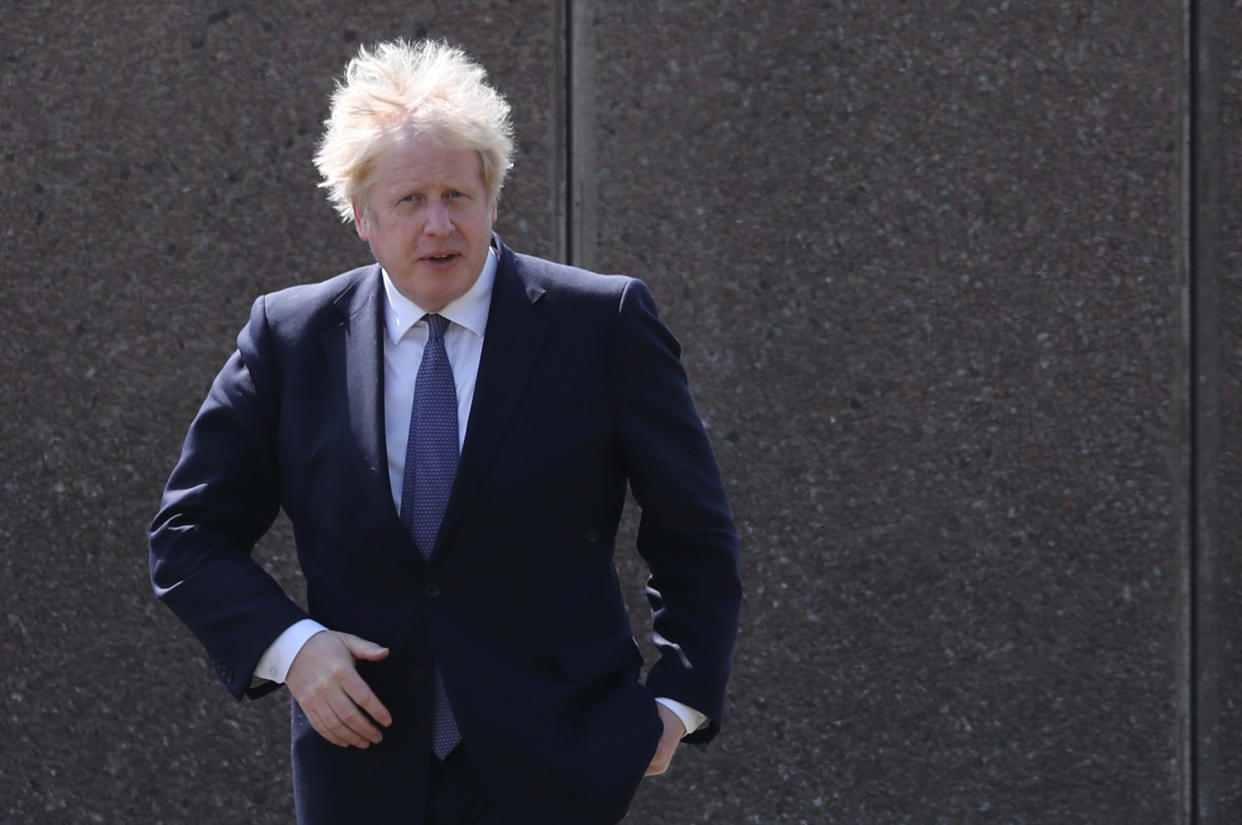COVID Indian variant increases 150% in a week as 'anxious' Boris Johnson 'ruling nothing out'

Cases of the Indian coronavirus variant have risen by 152% in the space of a week.
New figures from Public Health England (PHE) show that as of Wednesday, there were 1,313 confirmed cases involving the B.1.617.2 variant, which was first identified in India.
This is up 793 from 520 last week – demonstrating why some scientists and ministers are increasingly concerned about its spread in the UK.
PHE has said it is “actively monitoring” the impact and severity of the variant.
It comes after Boris Johnson hinted at the possibility of local lockdowns.
Speaking earlier on Thursday, the prime minister admitted he is "anxious" about the variant and said he's "ruling nothing out".
Asked if local lockdowns were possible, Johnson said: “There are a range of things we could do, we want to make sure we grip it."
Watch: PM not ruling out local lockdowns for Indian variant cases
He added: "At the moment, I can see nothing that dissuades me from thinking we will be able to go ahead on Monday [with the third easing of lockdown restrictions] and indeed on 21 June [when the government wants to drop all restrictions on social contact], but there may be things we have to do locally and we will not hesitate to do them if that is the advice we get.”
The Scientific Advisory Group for Emergencies (Sage) held a meeting to discuss the variant's spread, amid fears it could have an impact on the government’s road map out of lockdown for England.
In Bolton, which has one of the highest case rates of the variant in the country, mobile testing units have been deployed and door-to-door PCR testing has been offered to 22,000 people. A vaccine bus has been set up to increase uptake among those who are eligible.
Measures have also been brought in elsewhere, including in parts of London.
There are three variants in the UK that have been identified in India, but scientists are most worried about the B.1.617.2 one.
There is currently no solid data about the impact the variant may have on vaccines, though England’s chief medical officer Professor Chris Whitty said on Monday: “At this point in time our view is it is less likely to be able to escape vaccination than some of the other variants, particularly the South African one."
On Wednesday, the European Medicines Agency also said it was “pretty confident” that vaccines currently in use would be effective against the Indian variant – a view echoed by some British scientists.
While the total detected infections involving the variant remain relatively low, scientists are concerned at how sharply cases have risen over the last few weeks.
Prof Whitty also said it could be at least as transmissible as the Kent variant. This caused the massive spike of infections, hospital admissions and deaths in December and January – though at that point only a small number of people had been vaccinated.
However, one leading scientist insisted people "need to stop panicking about every new variant that comes along".
Prof Robert Dingwall, who is a member of the New and Emerging Respiratory Virus Threats Advisory Group (Nervtag) – a committee which advises the government on the threat posed by new respiratory viruses – told PA following the PM's comments: "B.1.617.2 seems to be slightly more transmissible and capable of outcompeting the B.1.1.7 [UK variant] or B.1.351 [South African variant] to become the dominant variant in the UK.
Read more:
Government 'ruling nothing out' as PM says he's 'anxious' about Indian variant
Have your say: How often will you work from home after 21 June?
“The consequence of this would be a greater number of mild illnesses with little risk of a surge in hospitalisations or deaths.
“This variant seems to be better managed by the vaccines than the South African variant so... vaccinated people have only a very low risk of infection that is likely to be mild.”
Meanwhile, another expert has dismissed the idea of local lockdowns to deal with the Indian variant, pointing to the limited effectiveness of tier systems last autumn.
Prof James Naismith, from the University of Oxford, told BBC Radio 4's Today programme that it may spread “way beyond” the local areas where it has been detected.
“I think we should view it as a countrywide problem,” he said. "It will get everywhere. We keep learning this lesson, but we know that this will be the case.
“When we tried locally having different restrictions in different regions that didn’t really make any difference."
Watch: Do coronavirus vaccines affect fertility?



